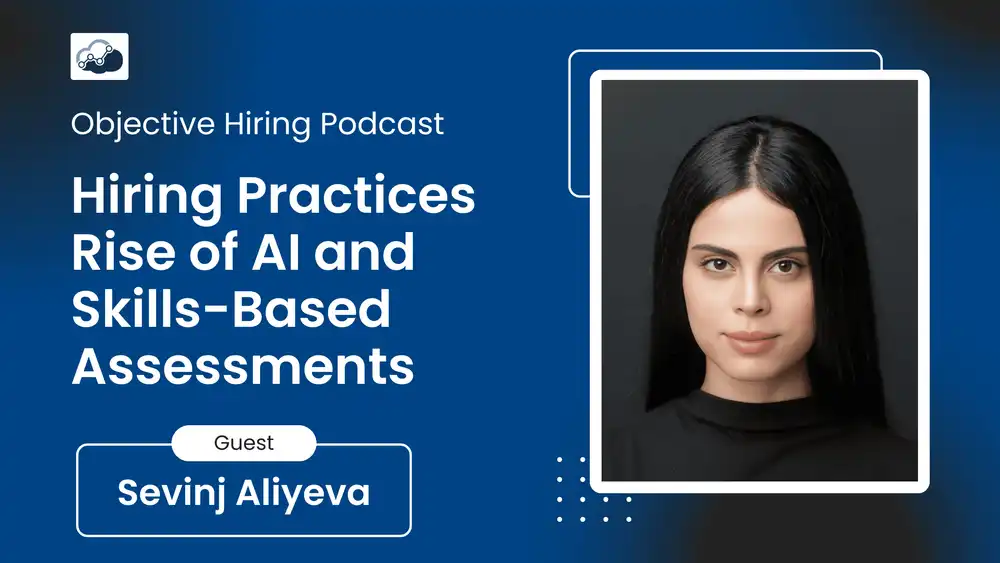Sevinj Aliyeva on the Flaws of CV-Based Hiring and the Case for Skills-First Recruitment

Sevinj Aliyeva on the Flaws of CV-Based Hiring and the Case for Skills-First Recruitment
In this episode of the Objective Hiring podcast, Tim Freestone, founder of Alooba, is joined by data expert Sevinj Aliyeva to talk about a problem that’s been hiding in plain sight for decades: hiring based on CVs doesn’t work.
“In traditional hiring, candidates are often screened based on their resumes — what’s listed, like education, past job titles and years of experience. But those details don’t always predict how well someone will perform on the job.”
Sevinj explains how even impressive-looking CVs can lead companies to make poor hiring decisions. In contrast, she’s seen how removing details like names, education and job titles — and replacing them with skills-based assessments — can reveal hidden talent.
“One company I worked for removed all personal details from applications. Candidates went straight into skills assessments. That’s how we found people who didn’t look impressive on paper but were incredible at the job.”
This approach, she says, strips out a lot of the noise that clouds decision-making in early hiring stages — including irrelevant data that can trigger unconscious bias.
“CVs are full of noise. You don’t need to know someone’s gender, ethnicity or religion to decide if they can do the job.”
Tim shared a story of a personal hiring bias that proves the point — giving a candidate an interview based purely on their CV noting they played professional football in Brazil.
“That person 100% got an interview with me for a product analyst job because he was a footballer… which is, of course, stupid and unfair to the other 499 applicants.”
The podcast episode is filled with examples of how resumes can mislead. For instance, companies that over-rely on CVs may unknowingly exclude people with relevant skills but unconventional backgrounds — including those without prestigious degrees or job titles.
“There are a lot of people out there who have real skills working with data, but maybe they weren’t lucky enough to get the right title or education. That doesn’t mean they wouldn’t be a better choice.”
Sevinj also calls out the risk of building teams based on “culture fit” — a concept often measured subjectively and biased toward familiarity rather than effectiveness.
“Overemphasis on culture fit can lead to hiring someone who aligns but is ineffective. It’s like an oiled machine without fuel.”
She warns that this emphasis often leads to homogenous teams and a lack of diversity in thought, which ultimately harms performance.
Instead, she and Tim advocate for a hiring process that is grounded in objective data — one where the same structured process applies to everyone, and candidates are assessed on the right skills for the role.
And that’s where a platform like Alooba comes in. If your organisation is still hiring based on resumes, or doing unstructured interviews and “pub tests,” it’s time to rethink. Alooba enables companies to objectively assess skills early in the funnel — giving every candidate a fair shot, and helping hiring managers avoid the pitfalls of bias-prone CV screening.
“The CV doesn’t predict candidate quality. It’s subjective. It misleads. And it often fails to highlight the very best people.”
Tim closes the episode by sharing an experiment he ran — giving 500 CVs and the same job description to 10 different recruiters. None agreed on who to shortlist. That alone is reason enough to abandon CVs and start assessing people on what really matters.
“We had skills data already. The people with the best skills rarely got picked. The correlation between CVs and ability was basically zero.”
Sound like a hiring rethink you need?